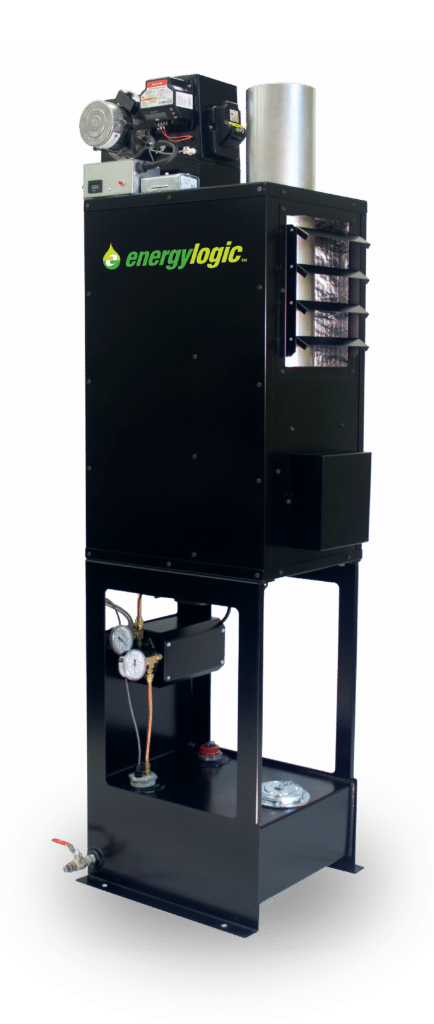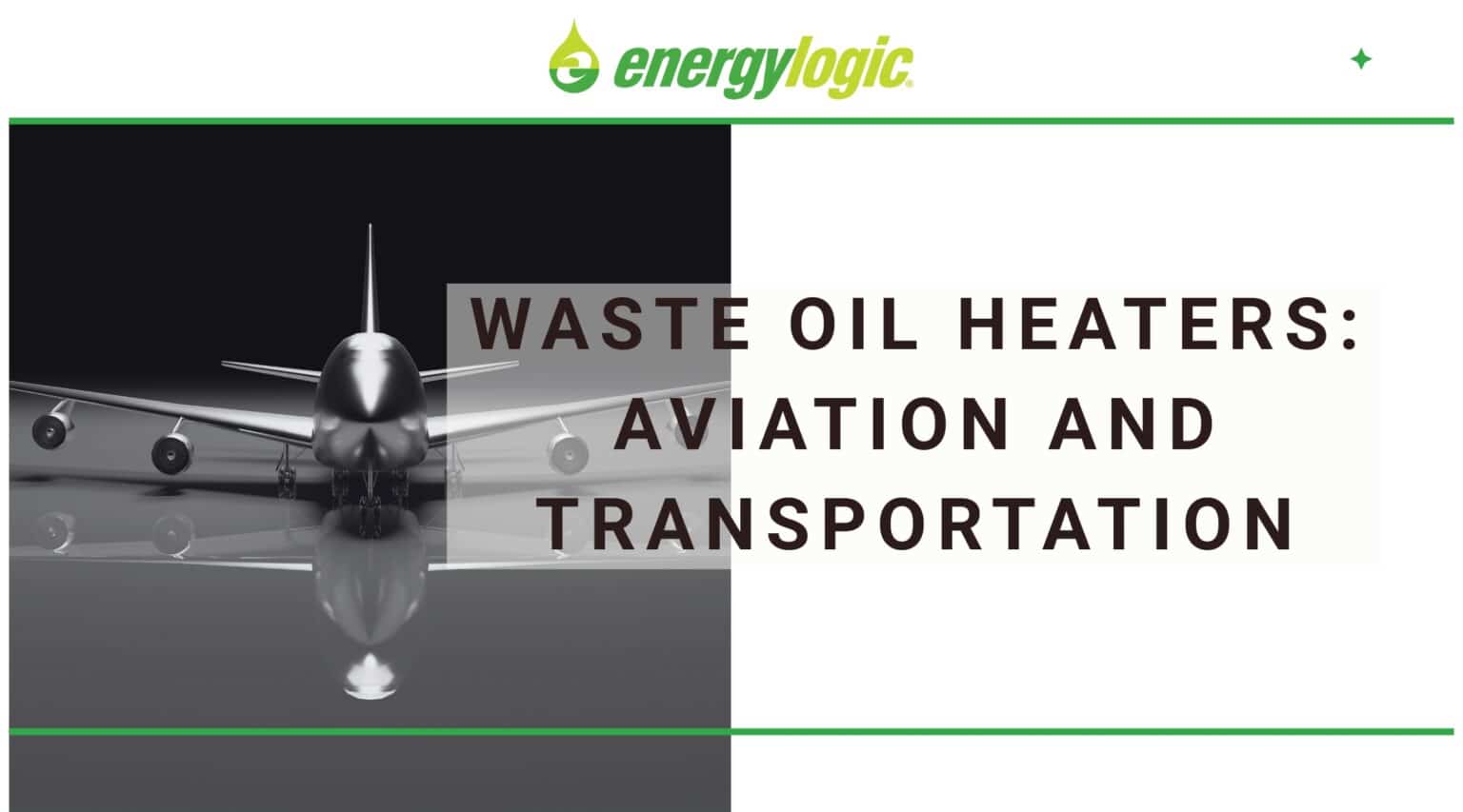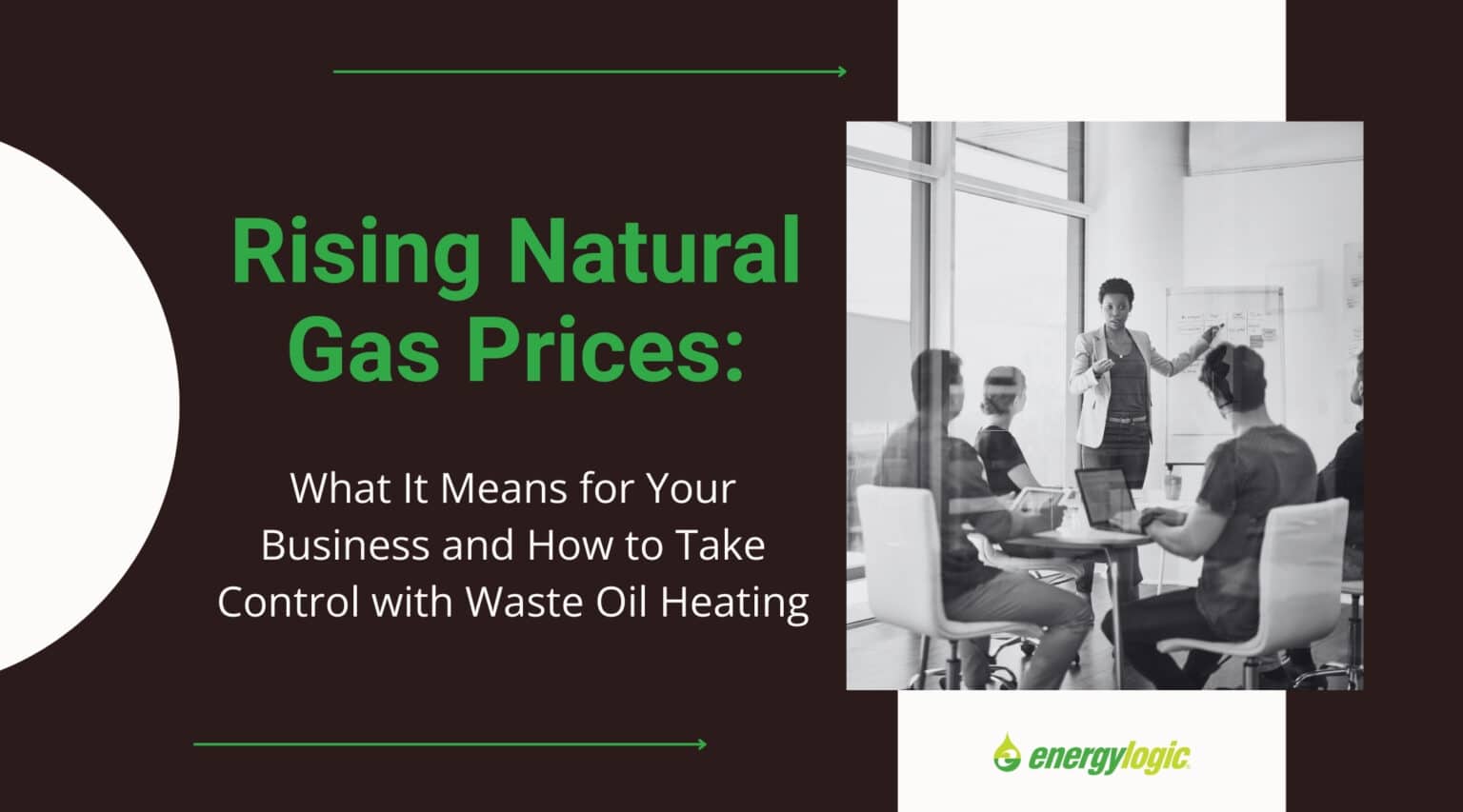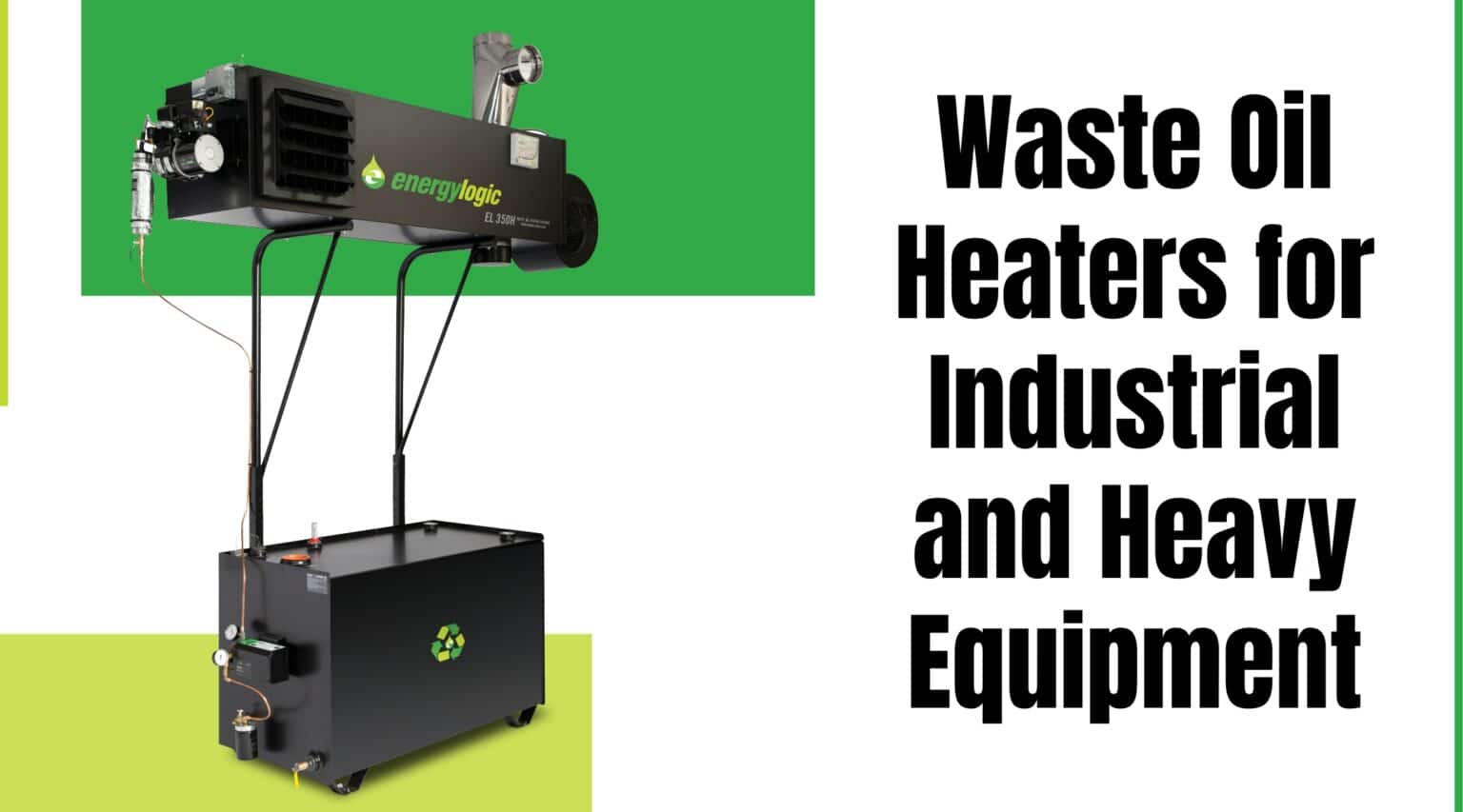The specific regulations and tax incentives that impact waste oil heating can vary greatly by country, region, and state. However, most jurisdictions have some type of legislation around the burning of waste oil. These regulations tend to revolve around environmental protection, safe handling, and proper management.

Today, we will look at some common regulations that may apply and outline some specific rules for burning waste oil in your location. We will also discuss which regions offer tax incentives for installing a waste oil heater.
TYPES OF LEGISLATION IMPACTING WASTE OIL HEATING
Several types of legislation can impact waste oil heating. These regulations generally address environmental protection, safety, and proper waste management. The specific laws and regulations vary by country and region, but the following types of legislation commonly influence waste oil heating:
Environmental Protection Laws:
Many states and countries have environmental protection laws that regulate the generation, transportation, storage, and disposal of hazardous waste, which includes waste oil. In most jurisdictions, improper management of waste oil results in large fines and legal consequences.
Air Quality Regulations:
Burning waste oil for heating may also be subject to air quality regulations in some locations. This is because waste oil heating releases some pollutants into the air after the combustion process. Permits may be required to operate a waste oil burner in your region, and emissions may need to be monitored and reported.
Waste Management Legislation:
Many countries and states have laws that dictate how waste oil is collected, stored, transported, and disposed.i Strict adherence to these regulations is necessary to minimize the environmental impact of improper handling and to avoid hefty fines.
Occupational Safety and Health Regulations:
Safety regulations may apply to the handling and operation of waste oil heating systems. This includes guidelines for storage, handling, and protective measures for workers involved in waste oil management.
Local Ordinances and Permit Requirements:
Local municipalities may have specific ordinances and permit requirements regarding waste oil heating. These could include zoning regulations, noise restrictions, or other local considerations. Depending on the municipality, permits may be required for the installation and operation of waste oil heating systems. These requirements help ensure facilities comply with environmental and safety standards.
WHERE TO FIND TO WASTE OIL LEGISLATION AND TAX INCENTIVE INFORMATION FOR THE UNITED STATES
In the United States, legislation and tax incentives related to waste oil heating is governed by various federal, state, and local regulations.
Federal Regulations: The Environmental Protection Agency (EPA) and the Code of Federal Regulations (CFR):
The EPA is the US federal agency responsible for environmental protection in the United States. The Resource Conservation and Recovery Act (RCRA) is the primary federal law regulating the management and disposal of hazardous waste, including waste oil. The EPA’s website provides detailed information on how to manage used oil and the federal waste oil regulations.
The CFR is a compilation of federal regulations. Title 40 of the CFR deals with the protection of the environment. Within Title 40, Part 279 outlines the regulations pertaining to used oil management. These regulations include the burning of used oil for energy recovery. You can access the used oil management regulations through the US Government Publishing Office website.

US State Regulations:
Each US state has its own environment agency that also plays a significant role in regulating waste oil heating at the state level. Some states may have their own set of regulations and requirements in addition to the federal requirements. Additionally, these state regulations may be more stringent.
If your home or business is in the United States, the EPA’s links to hazardous waste programs and U.S. State Environment Agencies is an excellent resource of information. This page shows both a map and an alphabetically linked list of states and U.S. territories’ websites with links to the pages related to solid and hazardous waste for that state.
Additionally, Energy Logic has complied legislation and tax incentive information for the following states:
Idaho’s State Regulations Regarding Waste Oil
Montana’s State Regulations Regarding Waste Oil
Tennessee’s State Regulations Regarding Waste Oil
Utah’s State Regulations Regarding Waste Oil
Virginia’s State Regulations Regarding Waste Oil
US Local Regulations
Local governments and environmental departments may also have specific regulations related to waste oil heating. Contacting your local environmental department or local health department is a good way to obtain information on any additional regulations that apply within your city or county.
US Federal and State Tax Incentives
Some jurisdictions offer tax incentives or credits for businesses that use environmentally friendly practices, including the recycling or reuse of waste oil.
At the federal level, IRS Section 179 offers a waste oil heater tax deduction. The IRS Section 179 deduction is a tax incentive in the United States that allows businesses to deduct the cost of certain types of property as an expense rather than depreciating it over time. This provision is intended to encourage businesses to invest in and stimulate economic growth by providing an immediate tax benefit. This includes installing assets like a waste oil heater. The deduction is subject to annual limits. For the tax year 2022, businesses can expense up to $1,050,000 of the cost of qualifying property, with a phase-out threshold beginning at $2,620,000. These limits are adjusted periodically for inflation.
At the state level, there can be further tax incentives. For example, Idaho’s Investment Tax Credit allows businesses a 3% tax credit towards qualifying depreciable property, which may include waste oil heating systems. In Montana, the Energy Conservation Investments Deduction allows businesses to deduct up to $3,600 for capital investments in buildings for the purpose of conserving energy. Other states, like Virginia, have set up a Petroleum Storage Tank Fund. This reimbursement program that offers some recompense for enterprises that maintain regulated storage tanks and experience a release. So, it’s always worth checking what tax incentives your state has around waste oil heating.
When researching U.S. legislation on waste oil heating, it’s crucial to consider both federal and state regulations, as well as any local ordinances that may apply. Keep in mind that laws, regulations, and tax incentives can be subject to updates and changes, so it’s essential to stay informed about the latest developments in this field.
WHERE TO FIND TO WASTE OIL LEGISLATION AND TAX INCENTIVE INFORMATION FOR CANADA
In most Canadian provinces, used oil burning is allowed, provided that you get permission and use approved models. Which is great news for businesses that want a safe method of recycling existing oil whilst reducing their heating bills. However, each province in Canada has different rules and restrictions.
Here is a summary of the waste oil burning regulations for each Canadian province. For a more detailed look at regulations, look at EnergyLogic’s Guide to Burning Waste Oil in Canada and check with your local government for additional municipal restrictions.
Alberta
The Alberta government allows waste oil burning provided that facilities do so in accordance with the Environmental Protection and Enhancement Act.
Basic requirements include: ·
- Registering under the Code of Practice for Energy Recovery or obtaining approval.
- Waste oil burners must comply with the General Requirements for Oil Burning Equipment and Oil Burners as published by the Canadian Standards Association. · The installation of oil burning equipment must also comply with the CSA standards.
- Waste oil storage tanks must comply with the Alberta Fire Code (1997), published by the National Research Council of Canada.
British Columbia
The Government of British Columbia allows waste oil burning if the following regulations are met:
- Waste oil must meet the specifications given in Figure 12, Waste Oil Specifications for Use as Fuel, in the Hazard Waste Legislation Guide
- A written record showing the waste oil meets the required specifications must be met.
For more comprehensive rules regarding the transport and disposal of used oil in British Columbia, contact the BC Used Oil Management Association (BCUOMA) or the British Columbia’s Ministry of Environment.
Manitoba
Manitoba allows burning of waste oil for the purpose of heating under certain regulations as pursuant to The Dangerous Goods Handling and Transportation Act. These regulations include:
- An operator of a used oil burner facility must register as a hazardous waste generator by submitting a completed registration form to the department to obtain a Hazardous Waste Generator Registration Number (also referred to as a Provincial Registration I.D. or MBG Number) assigned by the department.
- Used oil for a used oil burner must be stored in an aboveground storage tank system, in accordance with the requirements of the Storage and Handling of Petroleum Products and Allied Products Regulation (M.R. 188/2001), and the adopted sections of the Environmental Code of Practice for Aboveground and Underground Storage Tank Systems Containing Petroleum and Allied Petroleum Products, published by the Canadian Council of Ministers of the Environment, Reference Number 1326 (as amended from time to time).
- The operator of the used oil burner must not mix or blend used oil with any other substances other than product fuel for use as fuel in the used oil burner, except as permitted under CSA B139-15, Installation Code for Oil Burning Equipment (as amended from time to time).
- The operator must ensure that: (i) all combustion gases from the burner are vented to the outside (ii) the heater chimney is positioned to prevent the intrusion of combustion gases into any air intake, window or door.
- Lastly, all used oil burning machines must comply with provincial and local fire standards.
The Compliance Guide to Manitoba’s Hazardous Waste Legislation provides comprehensive, up-to-date details of the requirements and legal obligations concerning the burning of waste oil in Manitoba. For additional information, contact the Manitoba Branch of Environmental Approval Hazardous Waste Program.
New Brunswick
The government of New Brunswick permits those who produce used oils to burn the substance as fuel, as long as it is in an approved furnace that the producer owns and adheres to these additional requirements:
- Used oil must be burned at a rate less than 15 liters per hour per premises.
- Every furnace used to burn crankcase oil must conform with the standards outlined in provincial and municipal law. Check with your local Fire Marshal for details.
Newfoundland
For many years, Newfoundland’s official position on the combustion of used oil was that it was not permitted. However, with the advent of the Used Oil Control Regulations and the Air Pollutions Control Regulations of 2004, the Department of the Environment started to allow the combustion of used oil subject to strict compliance of their regulations and guidelines. The Used Oil Control Regulations under the Environmental Protection Act outlines the full restrictions.

Northwest Territories
Businesses in the Northwest Territories my burn waste oil provided they follow these guidelines: ·
- Register their used oil burner in accordance with the Used Oil and Waste Fuel Management Regulations.
- Have a representative sample of your used oil analyzed to make sure it meets the requirements of the Used Oil and Waste Fuel Management Regulations.
- Ensure only used oil suitable for combustion is consigned to registered used oil burner.
- Advise the Chief Environmental Protection Officer of the proposed incineration and provide detailed information to the Chief Environmental Protection Officer about the volume, source, location and impurities of the waste oil at least 14 days before the proposed date of incineration:
For more information on the requirements for registering and burning waste oil, please see the Plain Language Guide to the Used Oil and Waste Fuel Management Regulations, or contact (867) 767-9236 ext. 53187.
Nova Scotia
Businesses in Nova Scotia wishing to burn waste oil as a fuel source may do so provided certain guidelines are met:
- Prior written approval is given by the Administrator.
- An Administrator has been notified at least 30 days prior to the commencement of the burning.
- The used oil is not contaminated, and this is verified by a certificate respecting the analysis from a laboratory.
- Prior to January 31st of each year, a person who burns used oil shall complete and submit a written report to the Administrator which includes information respecting the volume of used oil burned during the previous calendar year.
The Used Oil Regulations made under Section 84 of the Environment Act provide a comprehensive description of these regulations.
Nunavut
The Government of Nunavut’s Environmental Protection Division allows waste oil burning in Nunavat provided a burner follows these regulations:
- Boilers and furnaces have been certified and approved for that purpose by the Canadian Standards Association (CSA), Underwriters’ Laboratories of Canada (ULC) or another certified testing agency acceptable to the Fire Marshal.
- Combustion gases are vented directly to the outside ambient air.
- Used oil is not blended or diluted with other hydrocarbons for the primary purpose of meeting the maximum levels of impurities.
- Written records of appliance operation are kept by the operator. These records should include when and how much used oil was burned.
- Used oil and waste fuel appliances are not operated on property that is zoned residential or, if the property is not zoned, on property in an area that is used primarily for residential purposes.
- Bottom ash and other solid residue collected from the appliance is suitable for burial. For additional information, contact environment@gov.nu.ca.
Ontario
Ontario’s Ministry of Environment and Climate Change allows waste oil burning in Northern Ontario if businesses and residents obtain a permit from the Ministry. To find the office nearest you, call toll free at 1-800-565-4923. Waste oil burning is prohibited in Southern Ontario.
Prince Edward Island
The Province of Prince Edward Island Office of Communities, Land, and Environment allows waste oil burning provided certain regulations are met and a permit is obtained. Individuals who are interested in operating a used oil burner on Prince Edward Island should contact the Air Quality and Hazardous Materials Office at (902) 368-5037 for more information.
Quebec
In Quebec, all parties interested in burning waste fuel in a burner must obtain a permit from the Minister of Sustainable Development, Environment, Wildlife, and Parks. Exempt from this rule are those who were issued permits prior to 1998 and facilities that operate off Quebec’s highway system.
Saskatchewan
The Saskatchewan Ministry of Environment allows the incineration of used oil and waste fuels as long as certain guidelines are followed.
- The design and construction of all waste burners must comply with standards set forth by the CSA or ULC. They must also meet all local fire codes and residential standards, which vary by municipality.
- Burnt at a rate slower than 500,000 BTUs/hr.
- Ensure that waste oil equipment is kept over 100 meters away from all residences, including secondary residences like cottages.
- Only burn waste oil of their own or procured from other individuals from the maintenance of personal vehicles.
Direct all questions about these policies to the Saskatchewan Ministry of Environment Client Services Office at 1-800-567-4224.
Yukon Territory
Waste oil burning is supported in the Yukon Territory if the rules and regulations of the Yukon Department of Environmental Regulations is met.
- Heater or furnace has been approved by the Canadian Standards Association (CSA), the Underwriter’s Laboratories (UL), or the Underwriters’ Laboratories of Canada (ULC) for the incineration of waste oil.
- The incinerator must be installed, operated, and maintained in accordance with the manufacturer’s specifications.
- Only uncontaminated waste oil may be disposed of through incineration.
- Have a permit under the Special Waste Regulations that specifically authorize this activity.
Those interested in applying for a permit or learning more about waste oil burning or disposal should contact (867) 667-5683.
For further information on specific rules in your province or municipality, check with your local department or ministry of the environment or contact the Used Oil Management Association of Canada.
CONCLUSION

To ensure compliance with relevant laws and regulations, it is advisable to consult with local environmental agencies, regulatory bodies, or legal professionals familiar with the specific requirements in your area. Keep in mind that the information provided here is general, and the specifics can vary widely based on your location.




